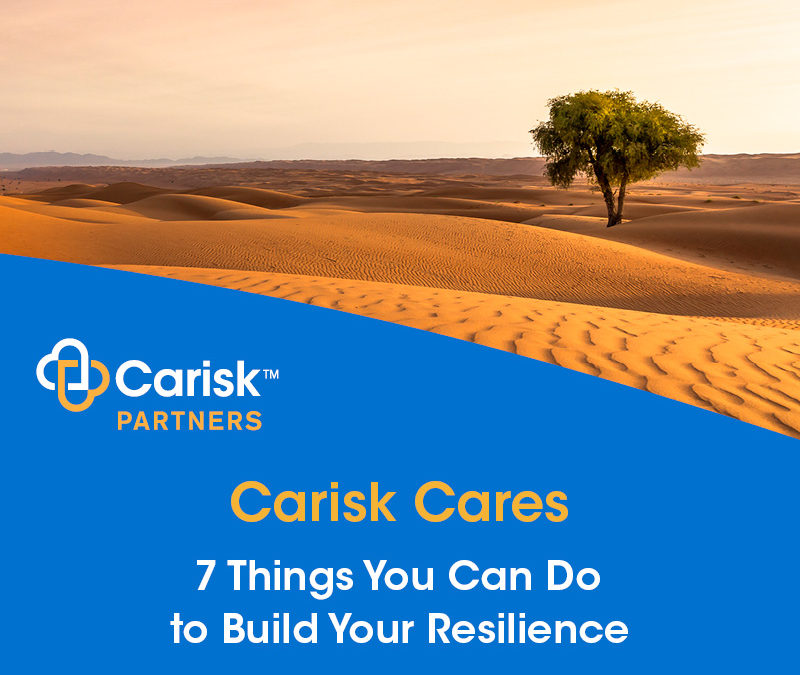By: David Vittoria, LCSW, MCAP, ICADC, Senior Vice President of Clinical Business & Product Development at Carisk Partners
It’s in our nature as human beings to resist change. Most of us tend to feel more comfortable, less anxious and better able to cope with things that are familiar, within our control, and about which we have some, at least very basic, knowledge.
The circumstances we’re faced with today amidst the COVID-19 outbreak, and the daily changes to our previously stable and relatively consistent status quo, have increased our stress and anxiety. Things are tougher for some of us to adjust to because many of us feel uncertain, powerless and completely unfamiliar with what we’re supposed to do during a viral pandemic.
Luckily, we’re wired for this. Our brains have been processing fear and uncertainty since we were peaking out of caves wondering if a saber-toothed tiger was going to eat us. Here are a few things we can all do to cultivate our resilience every day.
1. Master your emotions before they manage you.
Resilient people have a positive outlook. Remind yourself that this, too, shall pass.
2. Stay strong.
Resilient people face their fears and have an adaptive attitude that lets them focus on abundance, even amidst the scarcity.
3. Keep growing.
Resilient people are constantly becoming more valiant and courageous. They know that life is not what happens to us, but what we do with what comes our way.
4. Pick yourself up, as many times as it takes.
Resilient people understand that failure is not falling down but refusing to get up. They have the capacity to adapt successfully and the tenacity to never, ever quit.
5. Celebrate even the smallest victories.
Resilient people believe in themselves. They work hard and take joy in the small wins that give them strength.
6. Show up for others.
Even in the toughest of times resilient people find a way to care for others, because sometimes being selfless is the best way to discover your own strength.
7. Build relationships.
Resilient people maintain strong and supportive relationships, both personal and professional. As a result, they have caring, supportive people around them in times of crisis.





